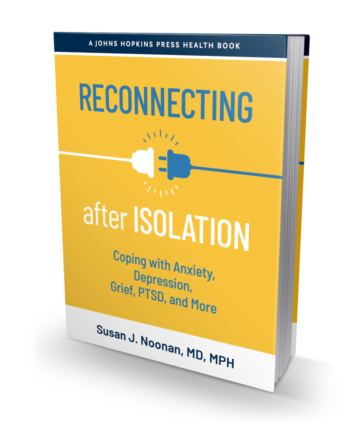Today I’d like to share with you a very interesting project I recently learned about that is based at Temple University. I believe it resonates with many people, including me, and is particularly relevant to those who experience social isolation, loneliness, depression and suicidality. The project comes from the Temple University Collaborative on Community Inclusion of Individuals with Psychiatric Disabilities and is entitled “You Matter…but what does mattering really mean?” (Neuman T, et al 2023*) I included a link to the Collaborative document at the end of this blog for those of you who might be interested in reading it.
The study was designed to document the voices and stories of those who have lived mental health experiences with respect to the concept of “mattering.” Their aim was to explore what mattering means to those who have mental illness and explore their feelings of whether they do or don’t matter to others in this world.
The TU Collaborative project is based on scientific evidence that suggests that feeling that we matter to others has positive implications for mental health, providing us with a sense of connection, and being a part of a community. Mattering is associated with positive relationships, satisfaction and purpose in life and protects us against social isolation and loneliness. The project authors state that social connections and feeling like we matter, which are important for everyone, are particularly important for those who have mental health problems. They note that the absense of mattering, or feeling that we don’t matter to anyone, has severe psychological repercussions that can lead to feelings of insignificance, social isolation, loneliness, social withdrawal and feelings of rejection. This makes a lot of sense to me.
In their document the Temple University researchers began by defining what mattering really means. They describe mattering as a psychological need that makes us feel valued, appreciated, recognized and respected, and in addition of having the sense that we provide value to others and contribute to their lives. When we matter to other people they are interested in us, care for us and depend on us. Feeling that we matter provides us with a sense of connection, being a part of a community and being able to make a difference.
The authors cite experts in the field (Elliot and colleagues, 2004) who defined three core components of mattering, which are:
- Awareness – other people see us and pay attention to us
- Importance – other people think that we are important to them
- Reliance – other people depend on us and would miss us if we were gone
Background reference was made to researchers (Flett, 2018) who found that people who felt they did not matter had relationships with people who minimized, invalidated or ignored their feelings and emotional experiences and with people who interrupted, ignored or refused to listen to them, leading to the sense of being invisible and that our voices don’t matter. In turn, such a person might then withdraw or avoid social situations that could help them feel included and cared for. In addition, the Collaborative authors note that a person with serious mental illness who experiences the symptoms of fatigue, drowsiness and lack of interest (anhedonia) has more barriers to feeling that they matter and has more obstacles to overcome when seeking out opportunities to contribute to others.
I can see how a person who is living through a mental health condition might observe others actively participating in their healthy lives, and, in comparing them to their own illness experience, might then feel different, left out, excluded, not eligible for a life, invisible and that they don’t matter to anyone. However, I would like to point out that sometimes the feeling that we don’t matter comes from inside of us, related to thought disturbances from a mental health condition like depression, and may not be accurate. We may actually have people in our lives who care for us and believe that we matter to them, but during the illness it’s hard to see that.
The Temple University initiative was a documentation project where study researchers sought out stories from persons with serious mental illness about their individual experiences. Participants were asked to describe what mattering means to them and to describe a time when they felt they mattered and when they did not. During the exercise the participants shared their many stories, with excerpts presented in the document, and, in so doing, independently reported instances involving the three core components of mattering, without being influenced by the researchers: Awareness, Importance and Reliance.
The documentation project paper concludes with some suggestions on how to help others feel seen and needed. These include making eye contact, saying hello, smiling, involving others and asking for their opinion or help, and expressing appreciation for them. To that I would add listening, acknowledging and validating the person’s concerns and worries, and engaging him or her in making decisions. In these ways we can let others know that they are important to us, needed and valued.
Stay Well!
*Neumann, T., Snethen, G., McCormick, B.P. (2023). You Matter. But what does mattering really mean? Temple University Collaborative on Community Inclusion of Individuals with Psychiatric Disabilities.

